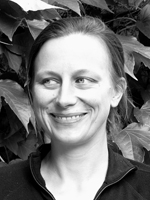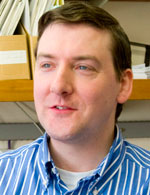Yan Chen and Onur Kesten have a new version of their paper on school choice mechanisms, inspired by the Chinese college admissions experiencewith what they call the "parallel mechanism":
From Boston to Chinese Parallel to Deferred Acceptance: Theory and Experiments on a Family of School Choice Mechanisms
Abstract: We characterize a parametric family of application-rejection school choice mechanisms,
including the Boston and Deferred Acceptance mechanisms as special cases, and spanning the parallel mechanisms for Chinese college admissions, the largest centralized matching in the world. Moving from one extreme member to the other results in systematic changes in manipulability, stability and welfare properties. Neither the ex-post dominance of the DA over the Boston equilibria, nor the ex-ante dominance of the Boston equilibria over the DA in stylized settings extends to the parallel mechanisms. In the laboratory, participants are most likely to reveal their preferences truthfully under the DA mechanism, followed by the Chinese parallel and then the Boston mechanisms. Furthermore, while the DA is significantly more stable than the Chinese parallel mechanism, which is more stable than Boston, efficiency comparisons vary across environments."
The paper focuses on what they call the
parallel mechanism, which falls between the Boston "immediate acceptance" and the Gale-Shapley "deferred acceptance" algorithms:
"While the sequential mechanism used to be the only mechanism used in CCA prior to 2003, to alleviate the problem of high-scoring students not accepted by any universities and the pressure to manipulate preference rankings under the sequential mechanism, the parallel mechanism has been adopted by 22 provinces by 2012. In the parallel mechanism, students can place several “parallel” colleges for each choice. For example, a student’s first choice can contain four colleges, A, B, C and D, in decreasing desirability. Colleges consider student applications, where allocations among the parallel colleges are temporary until a student is rejected from all the parallel colleges he has listed. Thus, this mechanism lies between the Boston mechanism, where every step is final, and the DA, where every step is temporary until all seats are filled. [An alternative interpretation of the parallel mechanism is that it approximates serial dictatorship with tiers (Wei 2009). Note, however, in the college admissions context when colleges have identical preferences, serial dictatorship and DA are equivalent.]"
...
"Transitioning from sequential to the parallel mechanisms, five provinces7 have adopted a hybrid between the sequential and parallel mechanisms, called the partial parallel mechanism. In Beijing, for example, a student can list one college as her first choice which retains the sequential nature, but three parallel colleges as her second choice. While variants of the parallel (and the partial parallel) mechanisms, each of which differs in the number of parallel choices, have been implemented in different provinces, to our knowledge, they have not been systematically studied theoretically or tested in the laboratory. In particular, when the number of parallel choices varies, how do manipulation incentives, allocation efficiency and stability change? In this paper, we investigate this question both theoretically and experimentally. We call the entire class of parallel (and partial parallel) mechanisms the Chinese parallel mechanisms, the simplest member of this class the Shanghai mechanism.
To study the performance of the different mechanisms more formally, we first provide a theoretical analysis and present a parametric family of application-rejection mechanisms where each member is characterized by some positive number e in
{1,2,...}of parallel and periodic choices through which the application and rejection process continues before assignments are finalized.
As parameter e varies, we go from the familiar Boston mechanism (e = 1) to the Chinese parallel mechanisms (e in { 2,...}), and from those to the DA (e = infinity)."
 Recent Nobel Prize Winner, Professor Al Roth provides an open, guest lecture for the University of Birmingham’s College of Social Sciences on Monday 4th February 2013.Described as “an economist who saves lives”, Roth’s application of economics and the idea of “matching algorithm” is enabling a creative use of his research – including life-saving work.His research has been applied to:Kidney Donation Exchange – matching incompatible patient-donor pairs with others, in as wide a network as possible (and no money changing hands)Public Schools – by matching students to high schools based on preferencesMedical Students – matching medics to hospitals where they complete residency programmesProfessor Al Roth will deliver a guest lecture, together with an opportunity to ask questions. Refreshments will also be available after the lecture.Further information:Doors will open at 5.45pm for a prompt 6.00pm start.PLEASE NOTE: Due to the popularity of this event, the lecture will now be taking place in the Great Hall in the Aston Webb Building.If you would like any information about the event please contact Guvinder Kaur Rajaniag.rajania@bham.ac.uk.For live updates from the event, follow the College of Social Sciences’ twitter page@CoSS_Birmingham.
Recent Nobel Prize Winner, Professor Al Roth provides an open, guest lecture for the University of Birmingham’s College of Social Sciences on Monday 4th February 2013.Described as “an economist who saves lives”, Roth’s application of economics and the idea of “matching algorithm” is enabling a creative use of his research – including life-saving work.His research has been applied to:Kidney Donation Exchange – matching incompatible patient-donor pairs with others, in as wide a network as possible (and no money changing hands)Public Schools – by matching students to high schools based on preferencesMedical Students – matching medics to hospitals where they complete residency programmesProfessor Al Roth will deliver a guest lecture, together with an opportunity to ask questions. Refreshments will also be available after the lecture.Further information:Doors will open at 5.45pm for a prompt 6.00pm start.PLEASE NOTE: Due to the popularity of this event, the lecture will now be taking place in the Great Hall in the Aston Webb Building.If you would like any information about the event please contact Guvinder Kaur Rajaniag.rajania@bham.ac.uk.For live updates from the event, follow the College of Social Sciences’ twitter page@CoSS_Birmingham.













